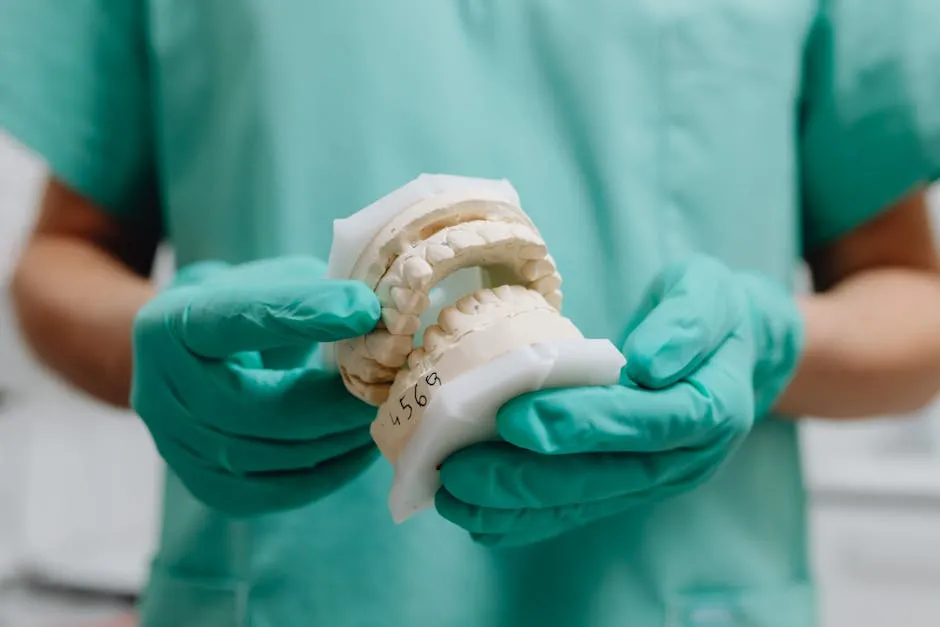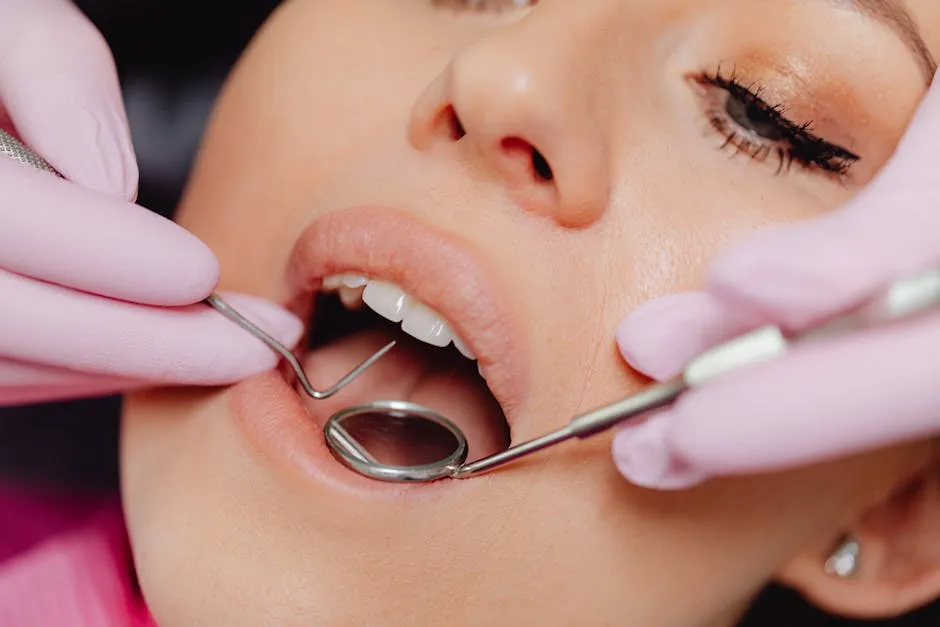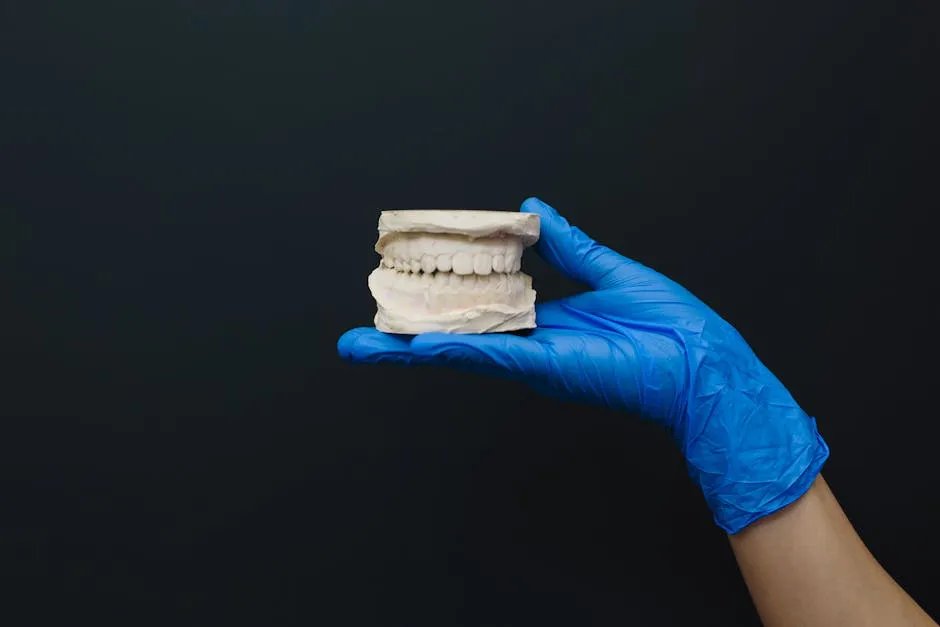
Why Can You Bite Harder with Your Molars?
Introduction
The human jaw is a marvel of engineering, capable of exerting impressive forces that allow us to enjoy everything from crunchy carrots to chewy steaks. But have you ever wondered why those big, flat molars at the back of your mouth seem to have all the bite? In this article, we’ll examine the fascinating anatomy and mechanics of your teeth, uncovering why molars can deliver a stronger bite than your front teeth. Get ready to chew over some interesting facts about your oral health and the incredible power of your molars!
Let’s start with a bit of anatomy. Molars are designed like tiny powerhouses, equipped to handle tough foods. Their broad, flat surfaces provide a large area for grinding, while multiple cusps help to crush and break down food into manageable pieces. In contrast, your incisors are like scissors, ideal for cutting but not quite the muscle-bound champions of chewing.
So, how strong is that bite? Studies show that the average bite force from molars can reach around 1,100 Newtons (or about 247 pounds per square inch) compared to the measly 83 pounds per square inch produced by incisors. Why the difference? It all comes down to leverage, muscle configuration, and our jaw’s architecture. Those molars are strategically placed to get the most power from your jaw muscles, which are quite the workout enthusiasts.
Moreover, our evolution has played a role in this biting prowess. Early humans needed to eat a diet that included tough, fibrous plants and meats. Our molars adapted over time, becoming larger and stronger to accommodate these dietary needs. This evolution is reflected in our jaw structure, muscle strength, and even the thickness of our tooth enamel, which helps protect against the intense forces generated during chewing.
In summary, the design and placement of molars allow them to excel where incisors cannot. Armed with this knowledge, you can appreciate the hard work your molars do each day. So, the next time you bite into something crunchy, give a little nod to those tireless molars at the back of your mouth!
The Anatomy of the Human Jaw and Teeth
The Structure of Molars
Molars are the heavyweights of our dental lineup. With broad, flat surfaces, they boast multiple cusps that come together like champions in a wrestling match. These features are not just for show; they are designed specifically for grinding and crushing tough food. Imagine trying to break down a crunchy carrot with a pair of scissors—frustrating, right? That’s how incisors feel compared to molars when it comes to heavy-duty chewing.
One of the unique traits of molars is their larger roots, which anchor them firmly in the jaw. This robust foundation allows them to withstand significant forces during chewing. Research shows that molars can exert a bite force of approximately 1,100 Newtons—now that’s some serious power! Their design provides a mechanical advantage, letting them handle the toughest foods with ease.
The anatomy of molars also includes a wider occlusal surface, which increases contact area with food. This extra space is essential for maximizing bite efficiency during meals. So when you’re gnawing on that steak, rest assured that your molars are doing the heavy lifting while your incisors sit back, sipping tea.
Speaking of keeping those molars healthy, what better way to ensure their longevity than with the Oral-B Pro 1000 Electric Toothbrush? This brush makes it nearly impossible to miss a spot, ensuring your molars stay as clean as a whistle. You’ll be amazed at how much fresher your mouth feels after just a few uses!
The Role of Incisors
Now, let’s talk about those front teeth—our incisors. Think of them as the opening act in a concert. They shine bright but can’t quite deliver the same punch as the main event. Incisors are designed for cutting and slicing rather than crushing. Their sharp edges are perfect for biting into apples, but they struggle with anything tougher than a piece of bread.
The limitations of incisors become evident when it comes to bite force. On average, incisors can only muster about 83 pounds per square inch. In contrast, molars laugh in the face of that number. Their role is primarily to prepare food for swallowing rather than to process it fully. So, when you crave something chewy, remember that your incisors are not your best friends for that task.
The Jaw Musculature
Let’s not forget the muscles behind this whole operation. The major players are the masseter, temporalis, and pterygoid muscles. These muscles are like a synchronized dance team, working together to create a powerful bite. The masseter, for example, is a powerhouse, responsible for elevating the jaw during chewing. It is particularly active when using molars, providing the extra force needed to grind food effectively.
In contrast, when you use your incisors, the muscle engagement changes. The forces exerted are significantly lower, and the muscle activity is less intense. This difference illustrates why molars reign supreme in the biting department. The coordination of these muscles allows us to maximize our chewing efficiency, making every meal a delightful experience.
So, next time you sink your teeth into something tough, thank your molars and the amazing muscles that support them. They are the true MVPs of your mouth, ready to take on whatever you throw their way!

Factors Influencing Bite Force
Bite force varies for many reasons. Age, gender, and dental health all play significant roles. As we age, our muscles can weaken. This decline typically starts around age 40 to 50. Interestingly, younger adults tend to have stronger bites.
Gender also affects bite force. Generally, men exert more force than women. This difference stems from muscle composition and size. Males often have larger jaw muscles, enhancing their bite capabilities.
Dental health is crucial too. Healthy teeth and gums provide better support for bite force. Gum disease can weaken the periodontal tissues, making it harder to exert force without pain. Keep your dental game strong with Crest 3D White Whitening Toothpaste, which not only keeps your teeth shiny but also helps fight cavities!
Physiologically, muscle fatigue can impact bite strength. When muscles tire, they exert less force. Also, tooth sensitivity can limit how hard we bite. If biting hurts, we instinctively ease up.
Why Molar Bite Force Is Superior
Molars are the heavyweights of chewing. Their unique structure allows them to produce greater bite forces than incisors. Molars feature broad, flat surfaces, perfect for grinding and crushing food. In contrast, incisors are designed for cutting.
Studies reveal that molars can exert around 1,100 Newtons of force. That’s a whopping 247 pounds per square inch! On the flip side, incisors only manage about 83 pounds per square inch. The difference lies in biomechanical advantages.
Molars are positioned further back in the jaw. This placement allows jaw muscles to work more efficiently. The masseter muscle, for example, generates more power when using molars.
Research backs this up. A study found significant differences in force exertion between molars and incisors. When people bite down hard, molars engage more muscle fibers, translating into stronger forces.
In summary, molars rule the bite force kingdom. Their design and position optimize the jaw’s mechanical advantage, allowing them to crush even the toughest foods. So, the next time you chew, remember: your molars are the real muscle behind that bite!

Dental Health Implications
Importance of Molar Health
Keeping your molars in tip-top shape is essential for your overall dental health. These sturdy teeth are your primary tools for grinding food. If they’re not healthy, your entire mouth can suffer. Neglecting molar care can lead to a world of trouble, including tooth decay and periodontal disease. Tooth decay is like giving a party invitation to bacteria. They set up camp, feast on sugar, and leave you with cavities. Periodontal disease, on the other hand, is a sneaky villain that can lead to gum inflammation, tooth loss, and even bone damage. So, treating your molars right is a must!
Preventive Measures
Taking care of your molars isn’t rocket science. Start with proper brushing and flossing habits. Brush your teeth at least twice a day using fluoride toothpaste. Floss daily to remove food particles stuck between the teeth where your toothbrush can’t reach. Mouthwash can also help to zap away any lingering bacteria. Speaking of mouthwash, give your mouth the refresh it deserves with Listerine Cool Mint Antiseptic Mouthwash to ensure a clean slate for your mouth!
Don’t forget about your dental check-ups! Regular visits to the dentist are crucial for maintaining molar health. These appointments allow for professional cleanings, early detection of issues, and expert advice on your oral care routine. Just think of your dentist as a superhero, fighting off the plaque and cavities that threaten your smile!

Treatments for Molar Issues
If you find yourself facing molar issues, don’t panic! Treatments are available to restore your dental glory. Common treatments include fillings for cavities, which are like putting a band-aid on a boo-boo. Crowns might be necessary for severely damaged teeth, offering strength and protection while looking fabulous.
Understanding molar functionality is key to making informed treatment decisions. For example, if a tooth is cracked due to excessive grinding, your dentist might recommend a nightguard. This device protects your teeth while you sleep, preventing further damage. You can find a comfortable Dental Night Guard for Teeth Grinding that helps you wake up without the added stress of dental damage!
In summary, prioritizing molar health is vital for your overall dental well-being. By implementing preventive measures and seeking timely treatments, you can keep your molars strong and functional. Remember, healthy molars mean a happy mouth!

FAQs
Why do molars have a different shape than incisors?
Molars and incisors serve different functions in our mouths, which is why they have distinct shapes. Molars are broad and flat, designed for grinding and crushing food. Their multiple cusps and larger surface area provide the perfect setup for tackling tough meals. In contrast, incisors are sharp and thin, ideal for cutting and slicing. They may be great for biting into an apple, but when it comes to grinding that apple into smaller pieces, molars take the lead. This functional difference is essential for effective chewing and digestion.
How can I improve my bite force?
Want to beef up your bite force? Here are a few tips! First, practice good dental hygiene. Healthy teeth and gums support a stronger bite. Regular brushing and flossing keep decay at bay, ensuring your molars are in prime condition. Second, consider incorporating jaw exercises into your routine. Chewing on harder foods, like raw vegetables, can help strengthen your jaw muscles. Lastly, if you grind your teeth, talk to your dentist about a mouthguard. Protecting your teeth can help maintain and even enhance your bite force.
Can dental issues affect my bite force?
Absolutely! Dental issues can significantly impact your bite force. Problems like gum disease or tooth decay can weaken the structures supporting your teeth, making it harder to exert force effectively. If you’ve experienced tooth loss, the remaining teeth may shift, causing misalignment that compromises your bite. Regular dental check-ups are essential for maintaining optimal bite force and overall oral health. Don’t wait until it’s too late!
Is it normal for my molars to feel sensitive when biting hard?
Experiencing sensitivity in your molars can occur, especially when biting down hard. This sensitivity might stem from various causes, including gum recession, tooth decay, or even a cracked tooth. If you notice persistent discomfort, it’s wise to consult your dentist. They can diagnose the issue and recommend an appropriate treatment plan to get you back to chewing comfortably.
How often should I visit the dentist to maintain my molars?
To keep your molars healthy and happy, aim for dental check-ups every six months. Regular visits allow your dentist to monitor your oral health, catch any issues early, and provide professional cleanings. However, if you have specific concerns or existing dental conditions, your dentist might recommend more frequent visits. Staying proactive with your dental health will help ensure your molars remain strong and functional for years to come!
Please let us know what you think about our content by leaving a comment down below!
Thank you for reading till here 🙂
And while you’re at it, make sure to keep your mouth fresh with Waterpik Aquarius Water Flosser! It’s like a shower for your mouth, blasting away debris and keeping your gums happy.
Don’t forget to treat your teeth right with some Colgate Total Whitening Toothpaste that not only whitens but also protects against cavities! Your smile will thank you.
Lastly, if you’re a dog owner, don’t forget about their dental health! Check out these Dental Chews for Dogs to keep their teeth clean and their breath fresh!
All images from Pexels




